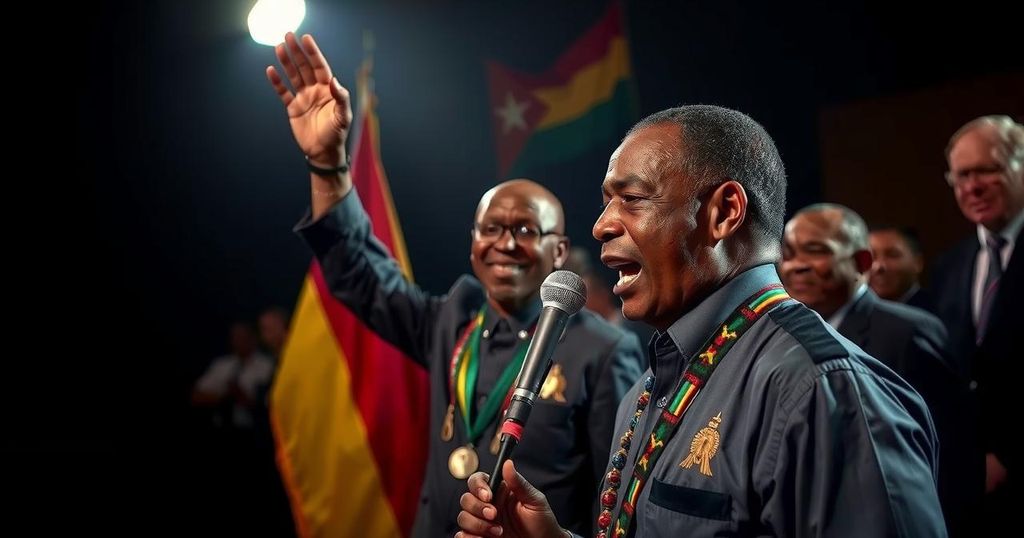Daniel Chapo Declared Winner of Mozambique’s Controversial Presidential Election

Daniel Chapo, representing the Frelimo party, has been declared the winner of Mozambique’s contested presidential election, receiving approximately 71 percent of the votes. His victory follows violent protests and allegations of electoral fraud against Frelimo, amidst ongoing insurgency challenges in the Cabo Delgado region. The election raises serious questions about the polity’s stability and the party’s long-held grip on power since independence.
In a notable political event, Daniel Chapo was announced as the winner of Mozambique’s presidential election following a process fraught with tensions and allegations of electoral misconduct. Mr. Chapo, representing the Frelimo party, which has maintained political dominance in Mozambique for nearly half a century, secured approximately 71 percent of the vote in the election held on October 9. He will succeed Filipe Nyusi, who has reached the term limit after serving two consecutive five-year terms. The electoral commission’s declaration comes during a period of significant turmoil in Mozambique, particularly due to a prolonged insurgency by Islamist militants in the Cabo Delgado province. This ongoing conflict has exacerbated socioeconomic divides, with stark contrasts between those capitalizing on the country’s extensive natural resources and the majority enduring persistent poverty and high unemployment rates. On the preceding Monday, violent confrontations erupted in the capital, Maputo, where police used tear gas and firearms against demonstrators. These protests were instigated by accusations of electoral fraud against Frelimo, alongside tragic reports of the fatal shooting of two supporters belonging to Chapo’s principal opposition. In response to the backlash, Frelimo firmly asserted its legitimacy, with spokesperson Ludmila Maguni claiming, “Frelimo is confident that the results reflect the will of the people.” As Mozambique moves forward, the political climate appears to be one of the most challenging tests faced by Frelimo since the nation gained independence from Portugal in 1975 and subsequently endured a civil war.
The recent presidential election in Mozambique has highlighted significant political and social challenges within the country. Frelimo, the ruling party since independence, confronts both internal dissent and external threats posed by extremism. The insurgency in Cabo Delgado has not only drawn international attention but has also polarized the population, worsening the disparities tied to natural resource distribution. Historical context plays a crucial role in understanding the current political landscape, heavily influenced by Frelimo’s prolonged governance and the legacy of civil conflict that followed independence.
In conclusion, the announcement of Daniel Chapo’s presidency underscores both the contentious nature of Mozambique’s electoral processes and the ongoing struggles faced by the nation amid internal conflict and socioeconomic challenges. Frelimo’s firm belief in the electoral outcome amidst widespread allegations of fraud raises critical questions about the democratic integrity of the process. As Mozambique navigates these tumultuous waters, the implications for governance, civil unrest, and economic equality remain to be seen.
Original Source: www.nytimes.com






